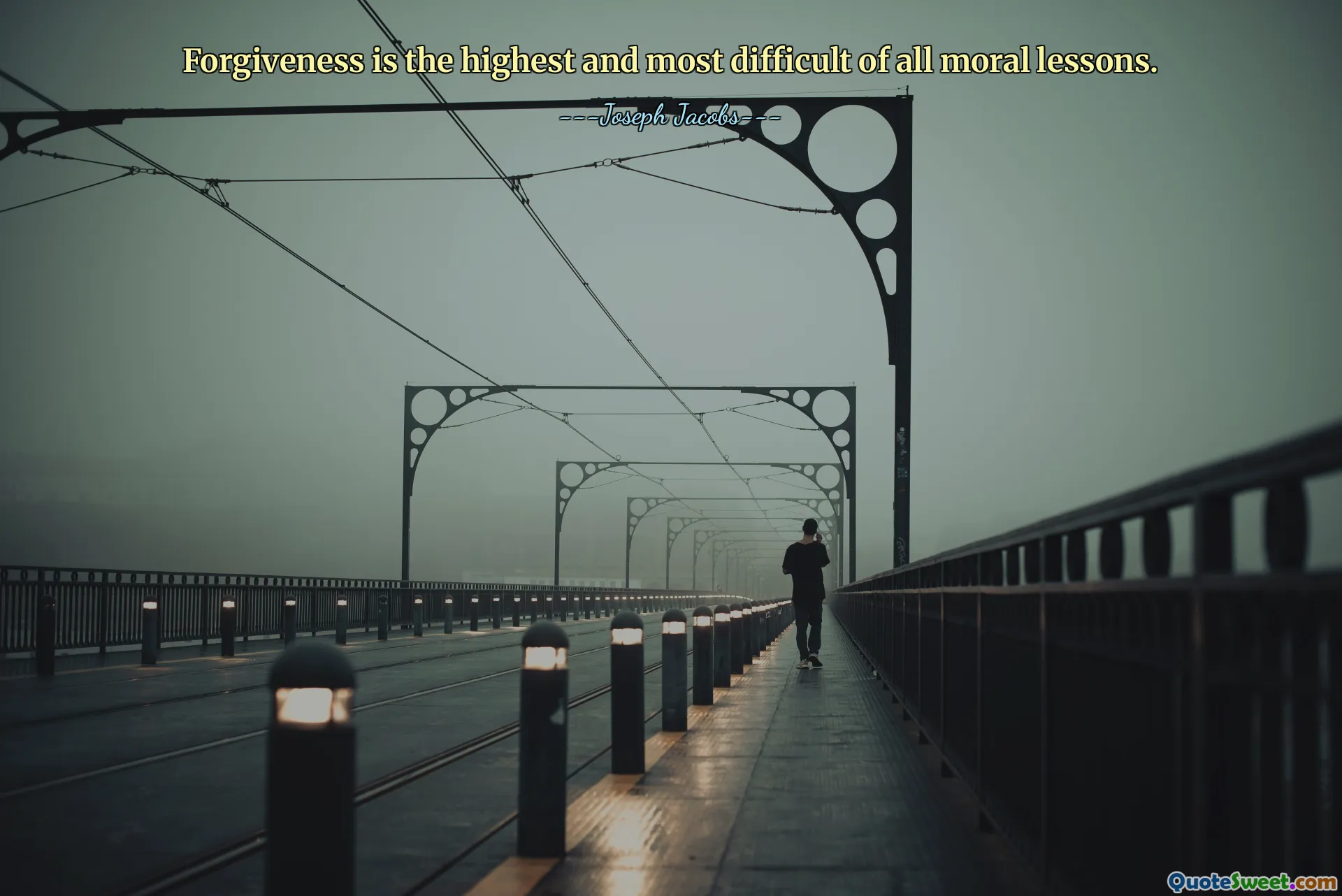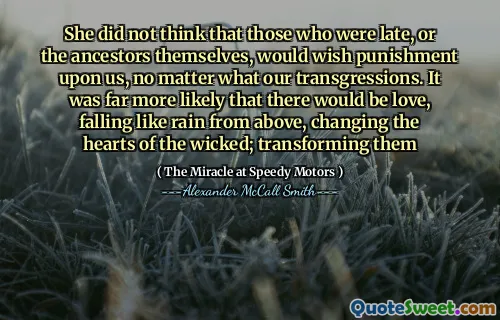
Forgiveness is the highest and most difficult of all moral lessons.
Forgiveness embodies one of the most profound and transformative moral capacities in human experience. While it seems straightforward—a release of resentment or vengeance toward someone who has wronged us—it encompasses a complex interplay of emotional strength, empathy, and humility. This quote by Joseph Jacobs underscores forgiveness not simply as a virtuous act, but as the pinnacle of moral education, a lesson that challenges the very core of our natural inclinations.
The difficulty in forgiveness arises from its confrontation with deep-seated pain and betrayal. Where instinct urges retaliation or withdrawal, forgiveness offers healing and restoration. It is an active, deliberate choice that demands understanding of the offender's flaws and humanity, but without condoning the harm done. Acting upon forgiveness requires us to transcend ego and pride, making it deeply counterintuitive, requiring moral courage and emotional resilience.
Beyond personal interactions, forgiveness also has societal implications—it can break cycles of violence and vengeance, opening pathways to reconciliation and peace. However, embracing forgiveness does not negate the need for justice or accountability, yet it allows space for compassion, enabling both victim and offender to move forward. This profound ethic questions us to grow, reminding us that our moral journey is one not just of rules and judgment, but of compassion that heals and unites, making forgiveness an elevated, and indeed difficult, moral lesson to embody in our lives.









